Valencia, the third-largest city in Spain, surprisingly offers a small-town feel for its residents. This is part of the reason why it’s so appealing to expats retiring to Spain.
In this guide, we’ll cover all the important points about life in Valencia. We’ll go over its lifestyle and culture, cost of living, and availability of property, among others.
Is Valencia a good place to live?
Valencia is a good place to live because it has great weather, an interesting local culture, and is well situated for travel both in Spain and wider Europe. It’s a port city bordering the Gulf of Valencia in the Mediterranean Sea. Importantly, this means you have all the benefits of Mediterranean life and the travel connections this offers.
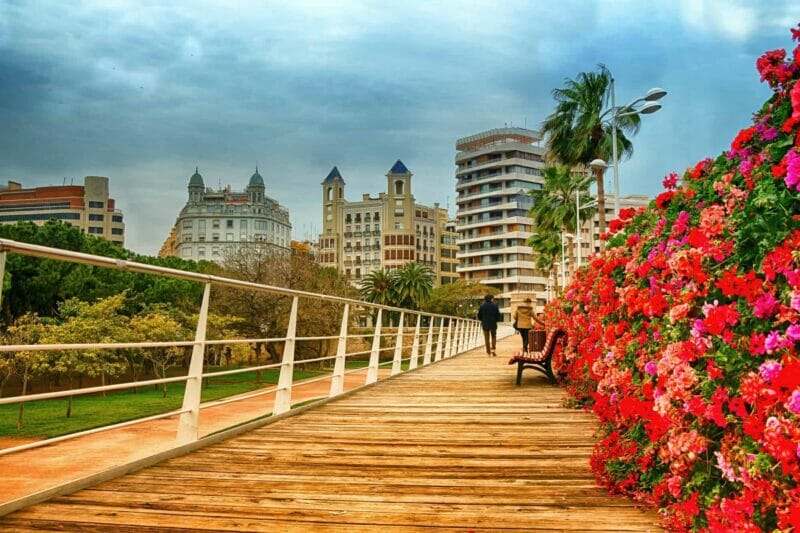
First and foremost on its list of appeals is the weather. Its average summer temperature is anywhere between 22 and 30 degrees, meaning it doesn’t get too hot. The sea breeze helps keep things cool and fresh, even in peak summer.
In the winter, you can expect lows of 6 degrees. However, this is no big concern, particularly as it remains fairly dry throughout the colder seasons. On its shortest day of the year, 21st December, you’ll still get nearly nine and a half hours of sunlight. On the longest day, this jumps up to nearly 15 hours!
As you’d expect from somewhere with this weather, there are plenty of popular beaches and outdoor spaces in Valencia. Everything remains fairly green, too, particularly in the hilly areas that surround the city.
When it comes to culture, Valencia has plenty to offer. For those who like dining out, there are plenty of interesting bars, cafes, and restaurants to enjoy. Seafood is popular here, and there’s plenty of good beer and wine to go with it.
Valencia’s nightlife is renowned throughout Spain. But if you’re not that into clubbing, there are concert halls, theatres, and outdoor cinemas for a more “cultured” experience.
The city itself is built around a medieval center, but it also boasts a range of modern buildings. You can go from the Cathedral of Valencia to the Museu de les Ciencies Pricipe Felipe in no time at all, and it’ll feel like you’re in a different city entirely.
In short, Valencia is a city that offers a rare combination of buzz, culture, and a laid-back lifestyle. This makes it appealing to all kinds of people and partly explains its popularity as an expat destination.
Is Valencia a safe place to live?
Valencia is a very safe place to live, compared both nationally and internationally. It has low rates of crime in all areas and is rated as very safe for walking alone – both day and night.
Considering it’s the third-largest city in Spain with over 800,000 inhabitants, this is an impressive rating.
All of Valencia’s types of crime are rated low or very low, including assault, robbery, drug-related crime, and harassment based on race or gender.
Its only moderate crime rate is corruption, which can often be the case in Spanish cities due to relaxed regulations.
On a similar point, Valencia has a very friendly community of both natives and immigrants. Much of this is ingrained in its family-centered culture, but this helps feed into the overall safety of its residents.
Importantly, this means many people feel safe letting their children play alone, even in the city’s central areas.
Is Valencia expensive to live in?
Valencia isn’t an expensive place to live; it’s actually got one of the lowest living costs in Europe.
Much like in other Spanish cities, things like public transport and food are cheap yet of good quality, and rent and house prices remain comparatively low.

If you come from Northern America or Northern Europe, you will find that general living costs are lower in Valencia.
For a more accurate comparison, the cost of living in Valencia is nearly 17% cheaper than in Madrid, Spain’s capital.
Renting a central apartment will set you back around €900 a month.
If you’re looking to purchase a property, Valencia is a good choice for that too. Property prices within the city center are around €2,500 per square meter, although this will, of course, depend on location and amenities.
In more suburban areas, expect to pay around €1,300 (£1,100) per square meter.
Basic utilities should only set you back around €122 (£105) a month for electricity, heating, and basic services.
Internet is slightly more expensive at €37 (£31) a month, but the city benefits from high-speed internet that you won’t find in rural areas of Spain.
This makes it a good choice for remote workers or for staying in contact with family and friends back home.
In terms of monthly finances, a couple would need a minimum of €1,000 a month, excluding rent.
This is great for city living but would only cover your basic amenities. For a more comfortable lifestyle, aim for anywhere between €1,700 and higher.
Don’t forget to budget for health insurance. Of course, as a legal resident, you can access Spanish state-funded healthcare, but many expats prefer a private option, either local or international.
To make sure you get the best value for money, compare international health insurance options from various providers to find the best deal.
The pros and cons of living in Valencia, Spain
Valencia might seem like the perfect destination for expats, and it almost is. Of course, there are some downsides (albeit minor ones) to consider before settling on Valencia as your destination of choice.
Here’s a list of the pros and cons of living in Valencia, Spain.
The pros of living in Valencia
1. It’s got great weather
As mentioned above, Valencia benefits from good weather all year round without the extreme highs experienced by some other Spanish cities. However, it can get quite humid in the winter. While this can make it feel warmer than it is, not everyone enjoys a humid climate.
2. There’s a big food scene
Valencia does seafood really well, particularly paella. Its proximity to the Mediterranean means there’s always fresh fish available, both in restaurants and in markets. The produce available for purchase is local, fresh, of good quality, and costs very little too.
3. Vibrant culture
Along with its numerous museums and galleries, Valencia hosts the Fallas Festival. This is a five-day music festival that features music, fireworks, and amazing street food. Also, Valencia’s nightlife scene is well known in the area if that sort of thing appeals to you.

4. Good public transport
Deciding to live in a city is often based on the quality of its public transport. Luckily, Valencia comes out top in this aspect. It has a metro line and efficient bus routes that also connect to Valencia Airport, which is roughly 9km from the city center.
Yes, you can live in Valencia comfortably without owning a car. However, if you feel you need one, find more information on Spanish driving regulations and a car registration process in our guide Sorting Out A Car And Driving In Spain.
5. Low cost of living
A big appeal to those looking to relocate, particularly in retirement, is the cost of living. Valencia will help make your money go further, especially with everyday essentials. Even with fluctuating currency exchange rates, you’ll still notice an increase in how much money you have to hand.
The cons of living in Valencia
1. A very busy tourist season
Tourism can be negative for some, particularly if it’s a big industry in an area. March is one of the busiest months for tourism in Valencia, but this can be overcome by simply going on a month-long holiday elsewhere.
2. The bureaucracy
Like many European destinations, Valencia’s relaxed pace of life permeates all areas, including bureaucracy.
This can make applying for permits, sorting out your Spanish bank accounts, taxes, and residency time-consuming, and chasing repairs or contract work next to impossible. However, once you get used to it, you’ll find it to be less of an issue.
If the prospect of doing all the paperwork on your own terrifies you, you can always recruit a local helper – gestor. Find out more in our guide to Using Gestorias In Spain To Help With Your Paperwork.
3. Low wages
This probably won’t be an issue for many expats, but the average salary in Valencia is below the Spanish average, which is below the European average.
But the low cost of living offsets this, so even if you do need to find work, the low wages shouldn’t be a massive issue.
Why is Valencia one of the best places to live in Spain?
Valencia is one of the best places to live in Spain because it offers the epitome of everything Spanish. It has great culture and food, is located in the Mediterranean, and enjoys a very low cost of living.
Importantly, too, it’s a large city but not so large that it can feel overwhelming. Whereas somewhere like Madrid or Barcelona can feel like a 24/7 buzz, Valencia offers a noticeably more relaxed lifestyle for its residents.
Valencia performs well in all key areas. It offers a good quality lifestyle, good healthcare facilities, moderate cost of living.
This is perhaps why it’s one of the best places to live in Spain. When you combine this with more intangible metrics, such as friendliness and cultural appeal, Valencia will always come out on top.
Living in Valencia or Barcelona?
Valencia ranks better than Barcelona in several key areas. Importantly, housing is much cheaper, services are more accessible, and it has a reliable public transport network.
On top of this, Valencia is further south, meaning it enjoys better weather. It’s also a smaller city, so you still get the benefits of urban living but without the overcrowded feel you’d find living in Barcelona.
Another important factor for expats is the language. In Barcelona, many people speak Catalan, which is the language of the area.
While not vastly different from standard Spanish, it can really throw a spanner in the works if your base level of knowledge isn’t great.
In Valencia, however, everyone speaks Castilian (standard Spanish). It’s also got a fairly neutral accent, making residents easier to understand, and is home to numerous language academies. If your knowledge of Spanish isn’t great, Valencia is the obvious choice.
Valencia vs. Seville
Both Valencia and Seville are located in southern Spain but on different sides of the country. They have similar population sizes and cultural activities but differ in the lifestyle they offer.

Seville is a better choice if you want somewhere inland and has more of an “authentic” Spanish feel to it. It’s also slightly cheaper than Valencia, but not by a noticeable amount.
Valencia, however, has a more consistent year-round temperature and is right on the coast. This makes it a better choice if you want the beach on your doorstep and don’t want to deal with summer temperatures in excess of 40 degrees.
Both have good nightlife and restaurant scenes. Also, both are only 9-10km from their respective airports. Valencia is more walkable and has a more reliable public transport system.
In short, the city you choose will mainly depend on whether you want a coastal or inland destination. Every other variable is comparable, making the decision even harder to nail down.
Moving to Valencia as a non-EU national
If you are moving to Valencia from a non-EU country and want to stay longer than three months, you’ll need to apply for a visa. This process is relatively straightforward.
You can stay in the country for 90 days without a visa, but for stays longer than this, you’ll need a visa. After living in the country for five years, you can apply for permanent residency, providing you have suitable proof of income and no criminal record.
You can still buy property before becoming a Spanish resident, as this could be used as a holiday home, provided you follow the updated travel rules.
Of course, the process of applying for residency and arranging relevant permits and documents can seem confusing. If you’d like help, there are plenty of relocation services that specialize in this type of service.
For a fee, they’ll be able to process the paperwork and advise you on the next steps.
Find more information on residency in Spain in Spain Residency, Registration On A Padron, NIE, And Other Paperwork.
Where do expats live in Valencia?
According to the Valencia Statistics Office, there are over 100,000 non-Spanish residents in the city that make up around 13% of its population. So where do most expats live in Valencia?
Ruzafa
Ruzafa is a trendy district that has undergone massive change in the last decade. It went from being a rough area to one of the hottest neighborhoods to live in.
Its expat community was drawn in by the accessible amenities and lost cost of commercial rent. As a result, it’s home to a number of expat-run businesses, making it easy to find connections.
El-Cabanyal
Also known as Canyamelar, this neighborhood is situated right on the beach. It’s undergone a major urban revival in the last six years and is now very popular with expats.
This is mainly thanks to its prime location but also because the cost of housing is still very low. It offers a good opportunity to snatch up a bargain before the market really takes off.
El Carmen
El Carmen is arguably one of the most attractive districts in Valencia. It’s situated in the older, medieval center of the city and benefits from everything a central location provides. Of course, this means it’s also one of the more expensive destinations and that it stays fairly busy throughout the year.
Canovas
Canovas is located just east of the city center and is another prime location in terms of services. The flats are more upmarket than somewhere like Ruzafa and are both larger and more expensive.
However, the prices are still comparatively quite affordable, and many will be willing to pay extra to live in such a beautiful neighborhood.
Is Valencia a good place to buy property?
Valencia is a good choice for buying property, whether as your home or as an investment.
Prices are fairly low for a city, and you’re never too far from important facilities. Also, as mentioned, the public transport network is great.

The benefit of looking at a city over a whole region is that it’s easier to narrow down your search.
This means that you don’t necessarily need to bother renting several places to get a feel for each. You could realistically visit the important areas in Valencia in a day or two.
However, do be wary of the property market in Spain because there’s little industry regulation. Estate agents are prone to subjectivity to get faster sales and may skirt over significant issues that could impact your decision.
The easiest way to overcome these issues is to speak Spanish or bring your own translator and to always see the property in full. Also, hire your own solicitor and notary for the sales process.
You can deal privately with sellers, but it helps to involve an estate agent just to ensure everything is as legitimate as possible.
Our A Complete Guide To Buying A Property In Spain will help you to understand the process and avoid possible mistakes.
Final thoughts on living in Valencia
Much of Valencia’s appeal is due to its location and culture. It makes a great choice for those wanting nightlife and those who want museums, galleries, and historic sites. Also, there’s plenty of countryside around for outdoor activities.
Its expat community can make it easy to integrate into the local scene, and its international connections mean it’s easy to visit friends and family back home. In short, Valencia offers the best of both worlds.
Of course, it’s worth getting a feel for the city before deciding to settle down there. This shouldn’t be too difficult, as you can take in the main highlights in just a few days.
However you approach it, living in Valencia offers plenty of benefits for expats.
Other popular locations in Spain to consider:
- The Insider Guide To Living In Malaga As An Expat
- 10 Must-Know Facts About Living In Granada, Spain
- Living On The Costa Blanca In The Province Of Alicante
- Living In Marbella – The Pros & Cons For Expats
- The Advantages And Disadvantages Of Living In Madrid
You might find useful:
- Living In Spain – the ultimate relocation guide full of practical information and tips on moving to Spain, from the pros and cons of visas and residency to the cost of living, healthcare, banking, and more.
- Best Places To Live In Spain – the best and most popular expat locations in Spain.
- Didn’t find what you were looking for or need further advice? Comment with your question below, and we will do our best to help.
Helpful external links:
- For the most up-to-date information on the cost of living in Valencia, visit Numbeo.
- Find out about schools in Valencia on Scholarum.es.
- Discover Valencia’s crime rates to see how safe the area is on the CostAbroad site.
- Find out about Valencia public transport, tickets, and passes on the en.northleg.com, Valencia’s ultimate travel guide.

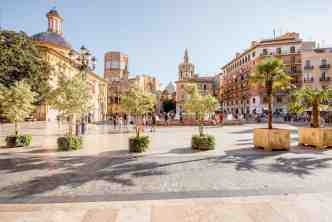
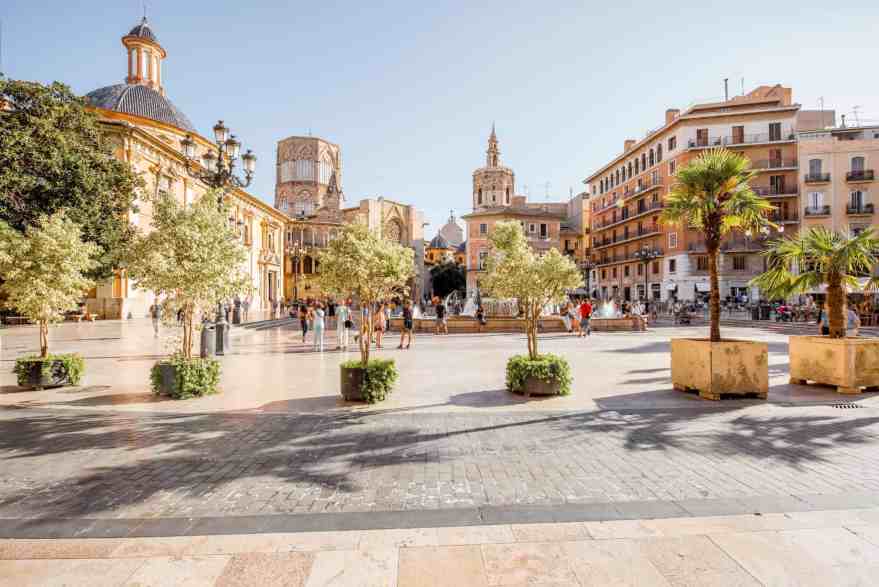

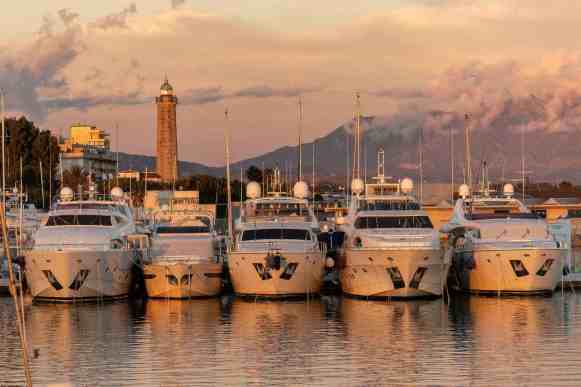
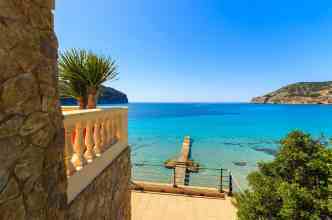
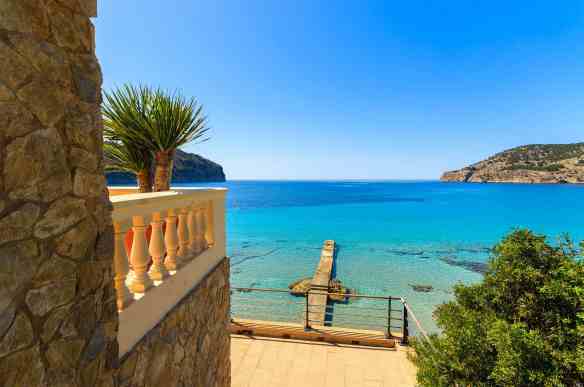


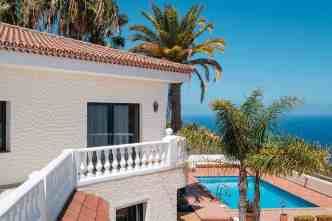
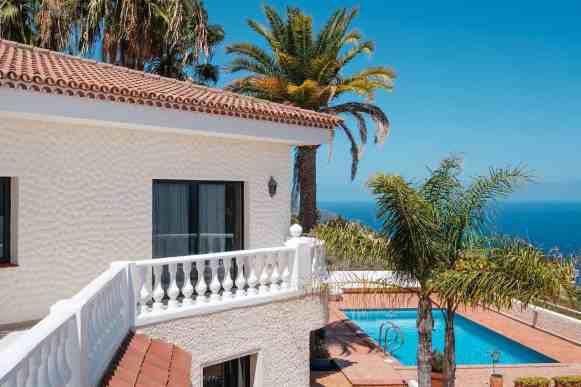
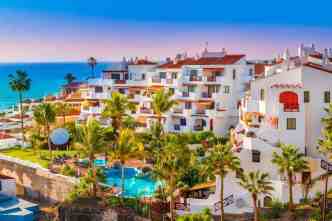
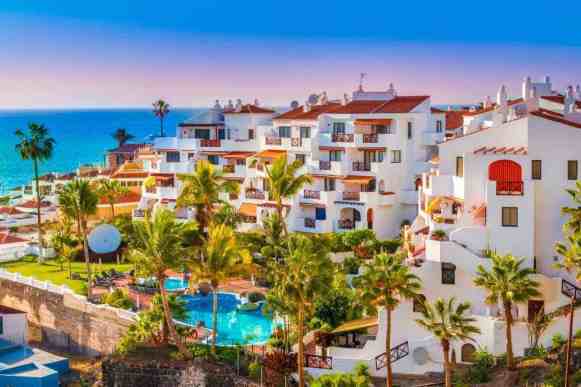
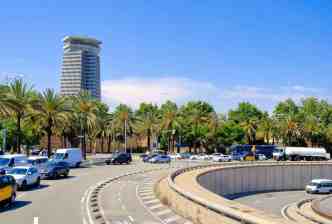

Hello:
Thank you for a great piece. I too am exploring a move. Aside from social media, can you recommend a place, a website maybe, where I can make contact with other expats in the general area? Thank you again.
Hi Michael. There’s a company called Expats Valencia, they organise tours for expats and tourists, you might want to check out their website.
Hi there,
I appreciate a lot such a wealth of useful information.
I would like to ask you though if you know anything about the health system there? Would an expat get access to a family doctor, specialists, hospitals etc ?
And how fast?
Are there private clinics and hospitals? Are they expensive?
Thank you so much.
Monica
Hi Monica, here’s a guide on general healthcare in Spain: how to register with a doctor, what is available for expats, what options are there and how much they cost.
I am looking to move there with my kids to complete my phd studies so how is the schools there and is it open for anyone?
Public schools are free and open for all children. All you need to do to enrol your child is to present proof of address in Spain. Your children must be registered with the municipality (empadronamiento). You can find out about the registration here: https://expatra.com/guides/spain/spain-residency-registration-padron-nie/
You will also need to present a valid passport to complete the enrolment. The general enrolment starts in May.
Your child will get a place in a public school no matter what, however, not necessarily in the school which is your first choice.
Nice article. What are some accessible outer suburbs or satellite towns where houses with gardens are possible? Thank you!
Godella, about a 20-min drive from Valencia, you can find some great villas and houses there with good outside space.
Rocafort could be great if you are looking for good schools.
La Eliana, about half an hour drive to Valencia city, all the amenities you need are here, cafes, restaurants, a supermarket, etc. You can find a nice villa with a lovely outdoor space, some of them have pools too.
Paterna, Picassent, Betera, Puzol are also worth considering.
Great information. We are US ex-pats living in Colombia and plan to move to Valencia or Alicante. We will be visiting in February and kicking the tires.
You did not mention the problems with flies and the windy season. Any info on those?
Thanks and cheers!
John and Susan
Yes, indeed, the latest heatwave in summer 2021 in Spain resulted in more black flies in Aragón, Catalonia, the Valencia Region and Madrid and they are not nice creatures. Many people complained they had to wear long sleeves all summer just to give themselves a bit of protection.
As to the wind, the windiest months are January, February and March, but even January winds are sometimes described as warm and breezy.
My wife and I are looking into Spain to retire in a couple of years from Dallas, TX and Valencia really sounds nice. I’m also a musician (bassist) and want to network with musicians there. Any info you could pass along would be great. I’m connected with a few musicians in Spain through social media.
My wife is originally from Colombia, so we’re good on the Spanish, and her daughter lives in Barcelona. We’re also interested in starting a business there, cafe with some Colombian influence.
Thanks for the article, great info!
Valencia is a great choice. Pre-covid the place was booming with various jazz, rock and blues clubs and venues where bands would play live and people enjoy themselves. Hopefully, it will all get back to normal soon. You will definitely find like-minded music-loving people in Valencia. As to opening a cafe, here’s a great recourse what to consider when you start a restaurant business in Spain: https://www.linkedin.com/pulse/thinking-opening-restaurant-spain-article-definitely-you-torrubiano?trk=portfolio_article-card_title
Good luck and let us know how it’s going for you.
Hi Tolbert
I can contact you with a friend who has a music academy here in Valencia, he also is a bassist and has a lot of contacts.
Let me know if you are still interested.
Kind regards
Victoire
@Victoire, hello..my name is gordon davis,
See hewr me at youtube.com gdarrow07.
Besides jazz guitar, I am also a bassist, i have my own
1963 Fender jazzbass, i also play piano, i am also a University degreed trained symphony oboist,16 years in Orch. I want to move to Valencia to retire, play music, sing, teach oboe etc. can you connect me with these folks you mentioned ? Had i the chance I would love to join a real symphony, play and sing in other places. Check my guitar video on youtube. Find me @ Bkesl@hotmail.com, emails..
thanks for reading this, I look forward to your replies
Gordon Davis, Oregon, USA
@Ola Degteva (Editor), thank you! Great information!
“In Barcelona, many people speak Catalan, which is a regional dialect of the area. While not vastly different from standard Spanish,”
Catalan is no more a dialect than Welsh is a dialect. It’s a separate language with different grammar rules from Spanish. You’ll also come across it in Valencia, where it’s called Valenciano, though not to the same degree.
Thank you, Ben, for your valuable addition.